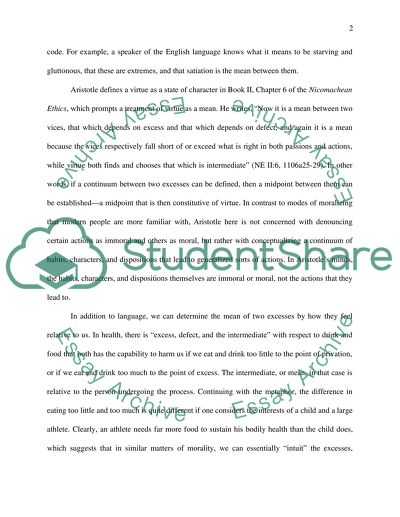Cite this document
(“Nicomachean Ethics by Aristotle Essay Example | Topics and Well Written Essays - 1000 words”, n.d.)
Nicomachean Ethics by Aristotle Essay Example | Topics and Well Written Essays - 1000 words. Retrieved from https://studentshare.org/philosophy/1434984-is-every-virtue-a-mean
Nicomachean Ethics by Aristotle Essay Example | Topics and Well Written Essays - 1000 words. Retrieved from https://studentshare.org/philosophy/1434984-is-every-virtue-a-mean
(Nicomachean Ethics by Aristotle Essay Example | Topics and Well Written Essays - 1000 Words)
Nicomachean Ethics by Aristotle Essay Example | Topics and Well Written Essays - 1000 Words. https://studentshare.org/philosophy/1434984-is-every-virtue-a-mean.
Nicomachean Ethics by Aristotle Essay Example | Topics and Well Written Essays - 1000 Words. https://studentshare.org/philosophy/1434984-is-every-virtue-a-mean.
“Nicomachean Ethics by Aristotle Essay Example | Topics and Well Written Essays - 1000 Words”, n.d. https://studentshare.org/philosophy/1434984-is-every-virtue-a-mean.


